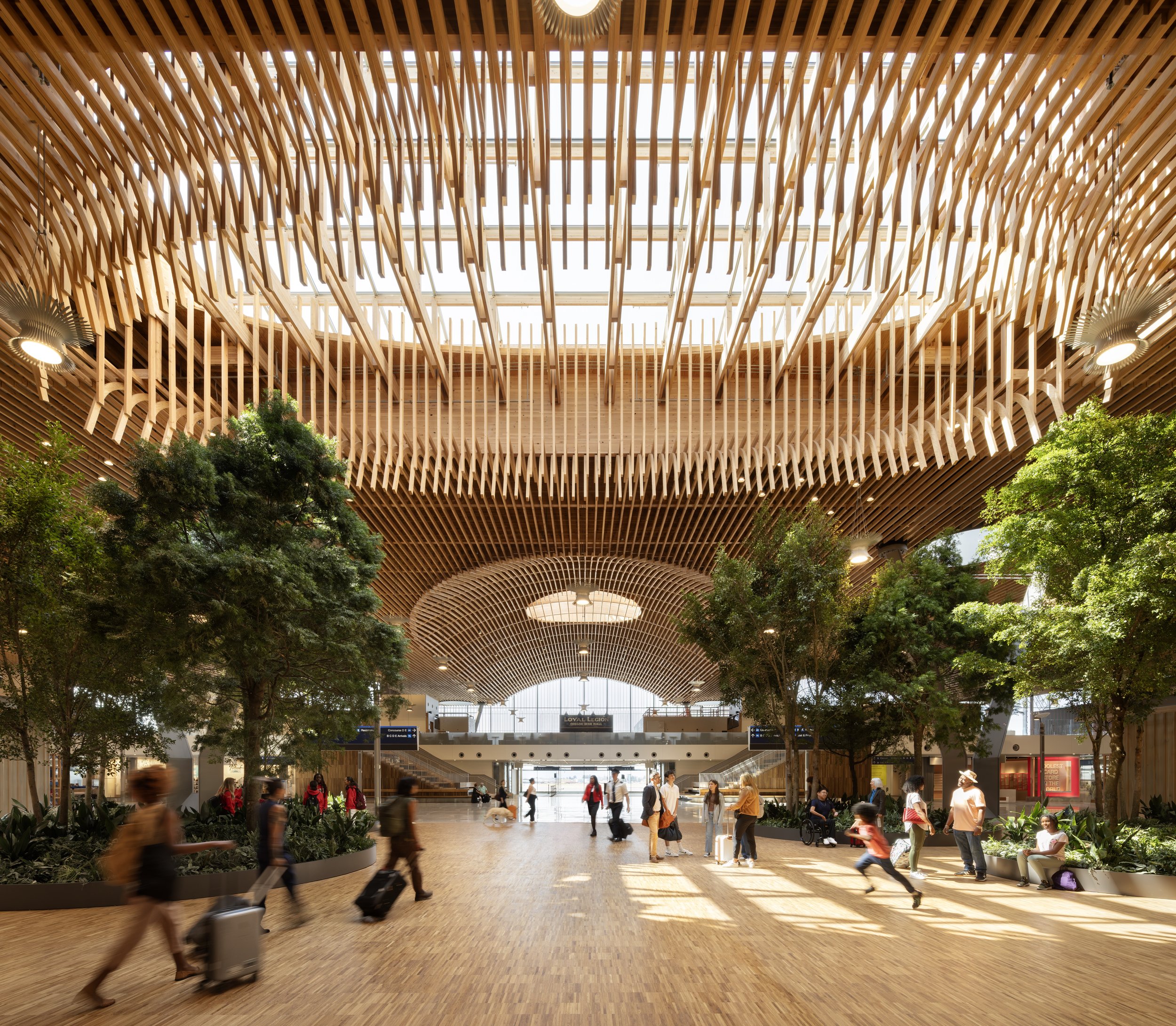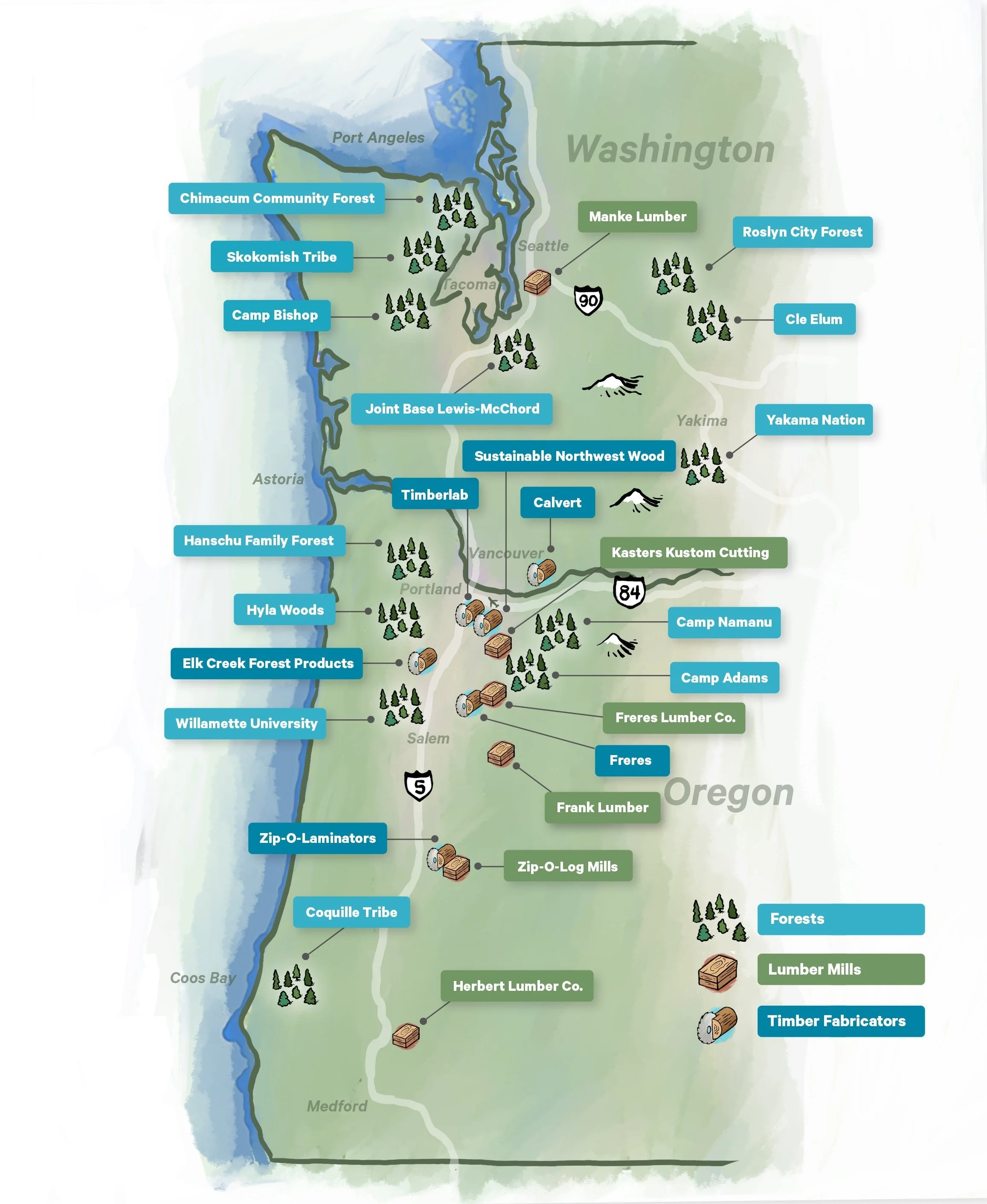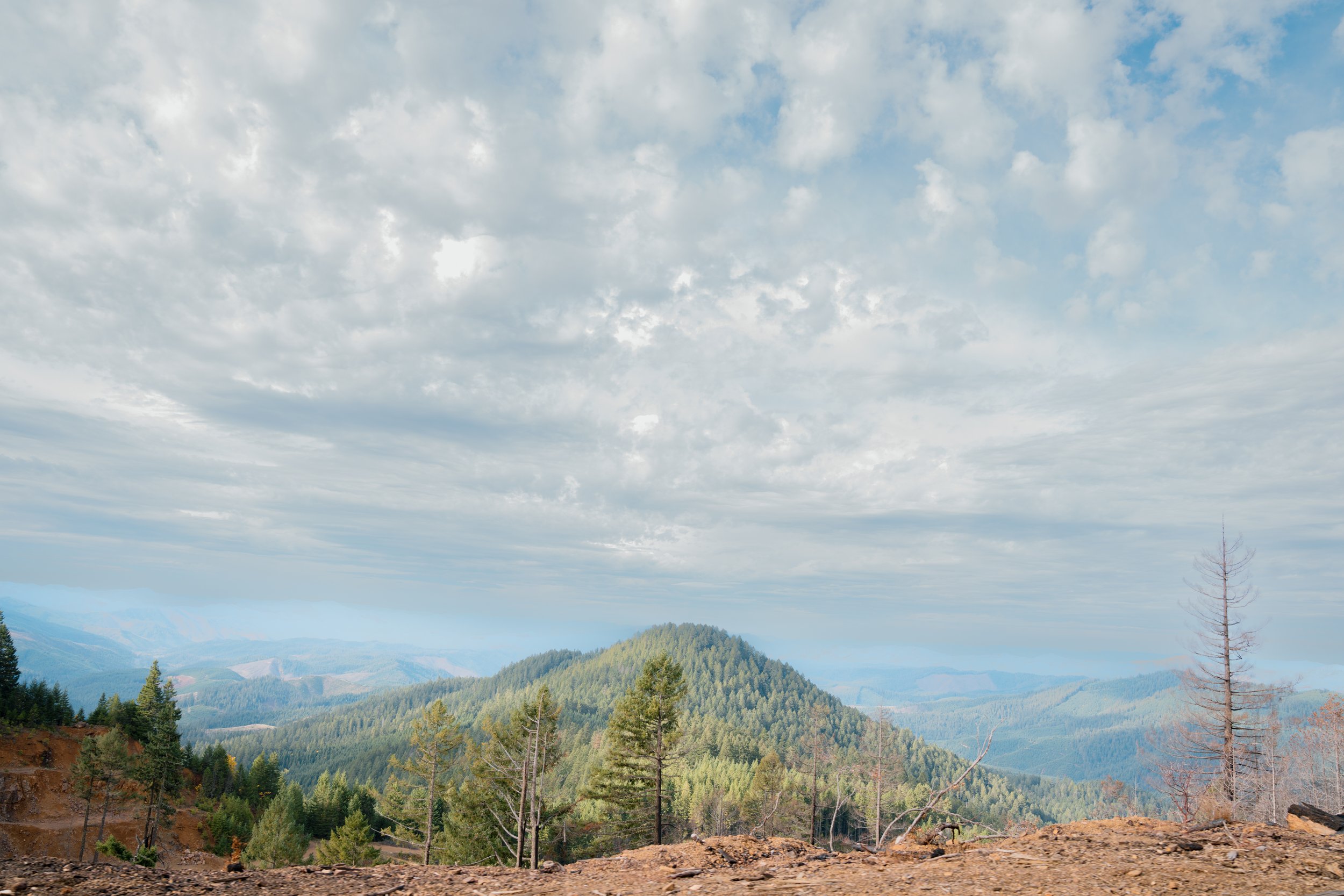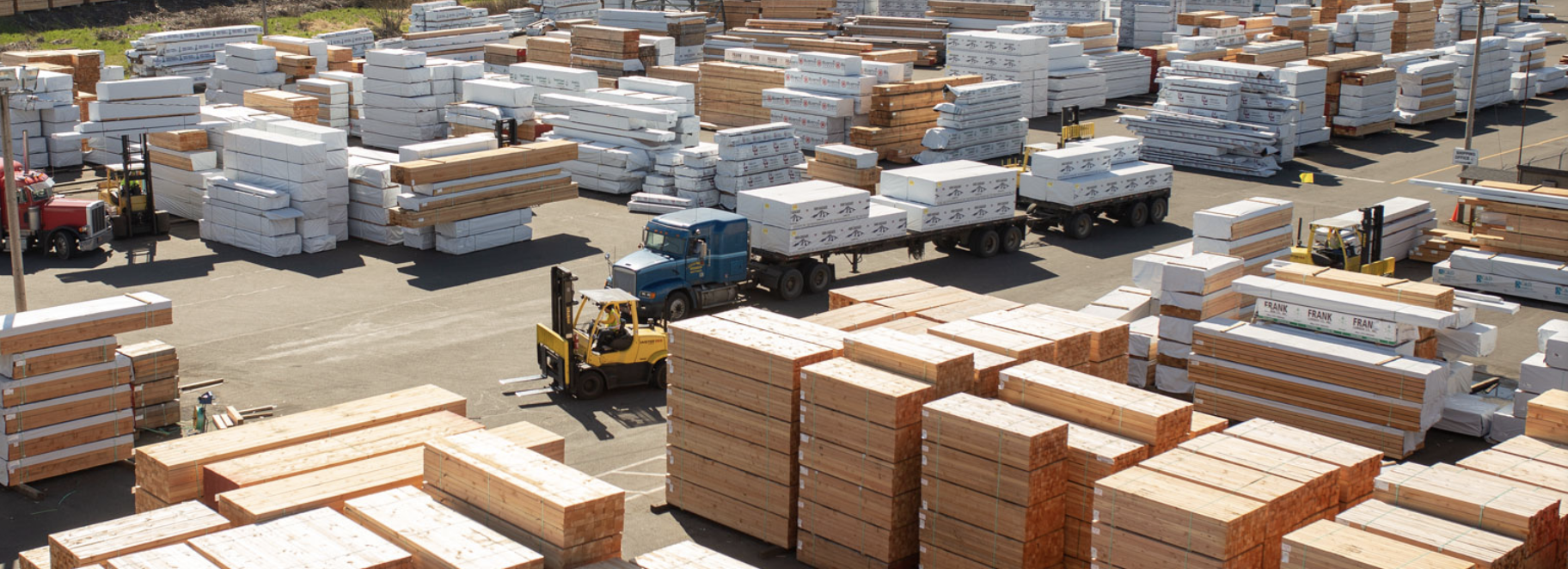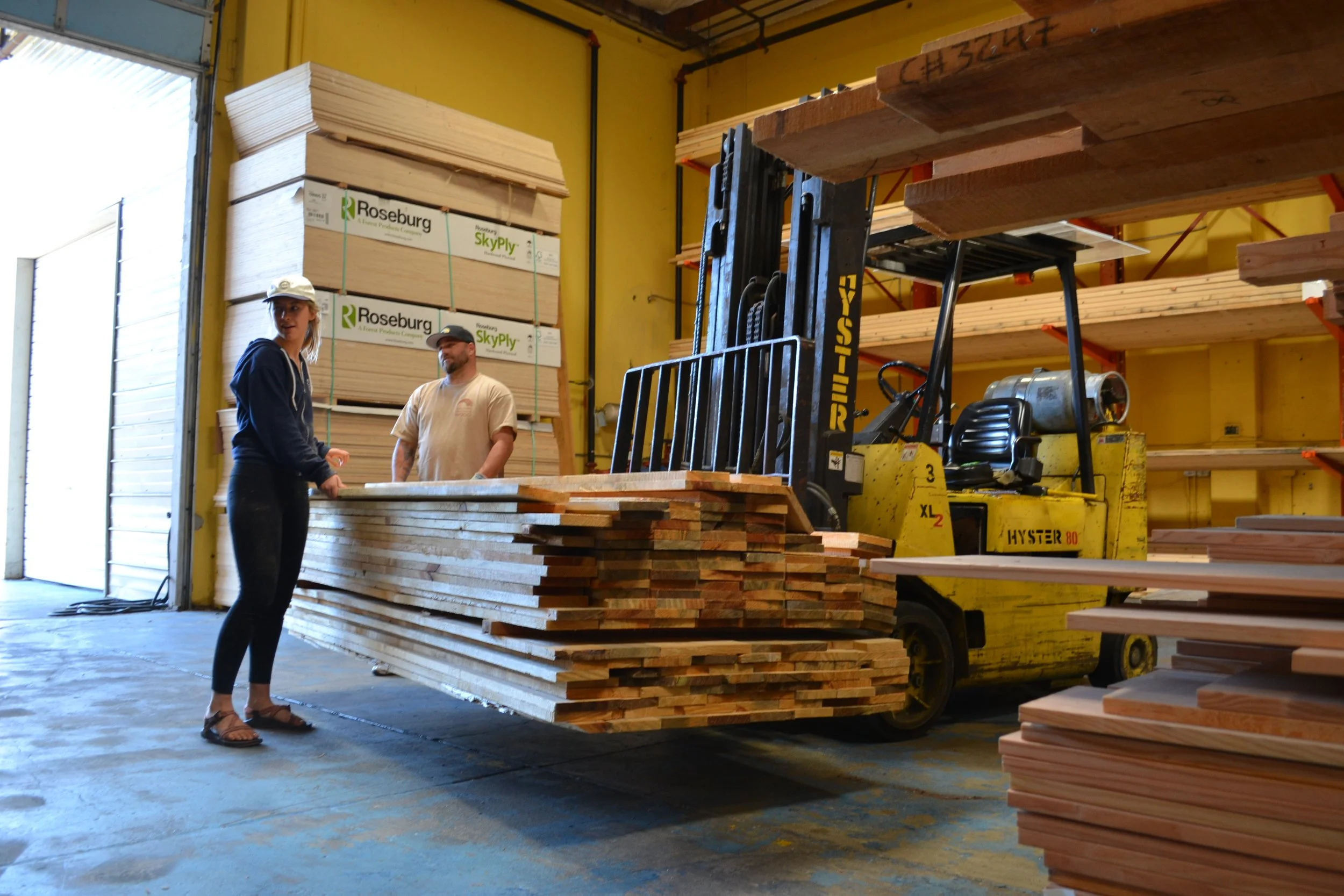The Portland Airport
A Story of People, Forests, and a Beautiful Mass Timber Building
In 2020 the Portland International Airport started a five-year transformative remodeling inspired by the lush forests of our region and the potential of mass timber design.
Unique in scale, the project connects 2.2 million board feet to the forests and people that grew the wood. It stands as a North Star for what is possible when sustainable building projects intentionally incorporate positive conservation, community, and equity outcomes. Every piece of wood used in the remodel can be traced back to its forest of origin — a love letter to the small families, Pacific Northwest Tribes, and other landowners that contributed to land stewardship and local economies across the region.
Designers & Builders
ZGF Architect's striking designs for the PDX-NEXT remodel have required the Hoffman Skanska Joint Venture and Timberlab to develop innovative solutions to bring it all together.
ZGF ARCHITECTS
ZGF Architects designed and helped orchestrate the wood package for the Portland Airport’s new roof and ceiling, including setting out the vision for a ‘walk in the forest’ as you stand beneath.
HOFFMAN SKANSKA JOINT VENTURE
Hoffman Construction Company teamed up with Skanska USA to create the Hoffman Skanska Joint Venture to construct the Portland International Airport transformative remodel.
TIMBERLAB
Timberlab (formerly known as Swinerton Mass Timber) came onto the project in 2019 in a design-assist role to ensure the design of the mass timber roof structure could be manufactured and procured from regional timber manufacturers sustainably and cost-effectively.
Sourced From Oregon & Washington
Through the stories of three unique wood products: Glulam Roof Beams, Ceiling Lattice, and Oregon White Oak Flooring, we highlight the tribes, family forest owners, and fabricators involved in the remodel of the Portland International Airport.
Keep scrolling to explore each product’s journey from forest to PDX Airport!
OREGON WHITE OAK FLOORING
CEILING LATTICE
GLULAM BEAMS
Glulam Beams
The Glulam beams used in the PDX-NEXT remodel represent 1.9 million board feet of wood sourced from well-managed public and private forests in Oregon and Washington. Harvested from forests in the Pacific Northwest, including the Coquille Indian Tribe’s forestland in Southwest Oregon and Yakama Nation’s forestland in Central Washington. The Yakama Nation provided 370,000 board feet, the largest fiber contribution of any of the landowners involved.
The largest beams are 80 feet long and 8 feet thick. Unlike almost any other building in the world, many of the beams in the airport are traceable all the way back to the forests where the fiber was grown. You can point at a specific beam and know exactly what landowner or tribal nation it came from!
The Forests
Harvested from forests in the Pacific Northwest, including the Coquille Indian Tribe’s forestland in Southwest Oregon and Yakama Nation’s forestland in Central Washington.
-

YAKAMA NATION'S FOREST LANDS
The Yakama Nation provided high-quality Doug-fir lamstock to the PDX airport project.
The Yakama Nation’s approach to forest management builds on the cultural view of gratitude that natural resources are a gift. Land and resources must be cared for with the understanding that they will be passed to future generations.
Yakama Forest Products processed Yakama Nation logs and milled them into lamstock. The lamstock was then sent to Eugene, OR, and made into glulam beams by Zip-O-Laminators.
-

COQUILLE TRIBE'S FOREST LANDS
The Coquille Tribe provided high-quality, Douglas-fir timber for the glulam beams used in the Skylight D roof of the new PDX terminal roof.
This timber is harvested on an 80-year rotation, meaning their logs grow longer to store more carbon than in a typical commercial forest. The Coquille Tribe prides themselves on the management of their ancestral lands on Oregon’s South Coast.
Herbert Lumber purchased the Coquille logs and kept them separate from all other logs throughout the supply chain. Zip-O Log Mills milled them into lamstock, and then Zip-O-Laminators processed them into glulam beams.
The Manufacturers & More
Yakama Forest Products, Zip-O-Log Mills & Zip-O-Laminators processed wood into Glulam Beams for the PDX-NEXT remodel.
-

YAKAMA FOREST PRODUCTS
Yakama Forest Products provided 370,000 BF of wood for the glulam beams. They were the largest fiber contribution of any landowners in the Portland Airport remodel project.
Guided by cultural ecological knowledge and science, Yakama Forest Products operates on the landscape as critical infrastructure - supporting forest health and landscape resilience to climate change and as an economic tool for the Yakama Nation to provide jobs for the community.
-
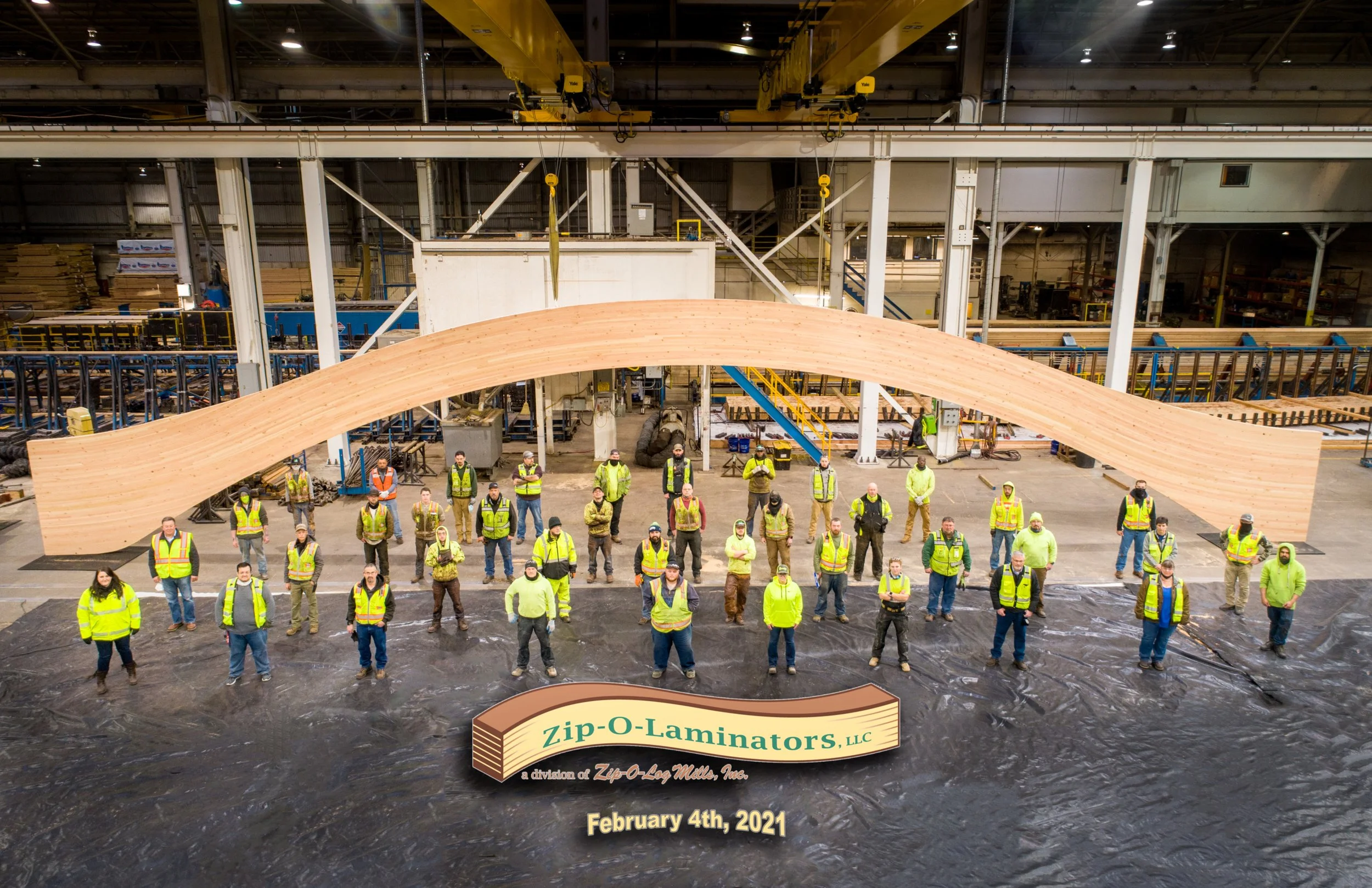
ZIP-O-LOG MILLS & ZIP-O-LAMINATORS
Zip-O-Log Mills milled logs from the Coquille Tribal lands into lamstock and then sent them to Zip-O-Laminators to process into the glulam beams that will span the entire roof of the PDX Airport remodel.
Zip-O-Laminators created glulam beams using timber from forests across the pacific northwest, including the Coquille Tribe and Yakama Nation. They produce high-quality glulam beams in exceptional sizes, including the exposed wood beams for the PDX Airport remodel, showcasing the magnificence of Pacific Northwest Douglas-Fir.
-
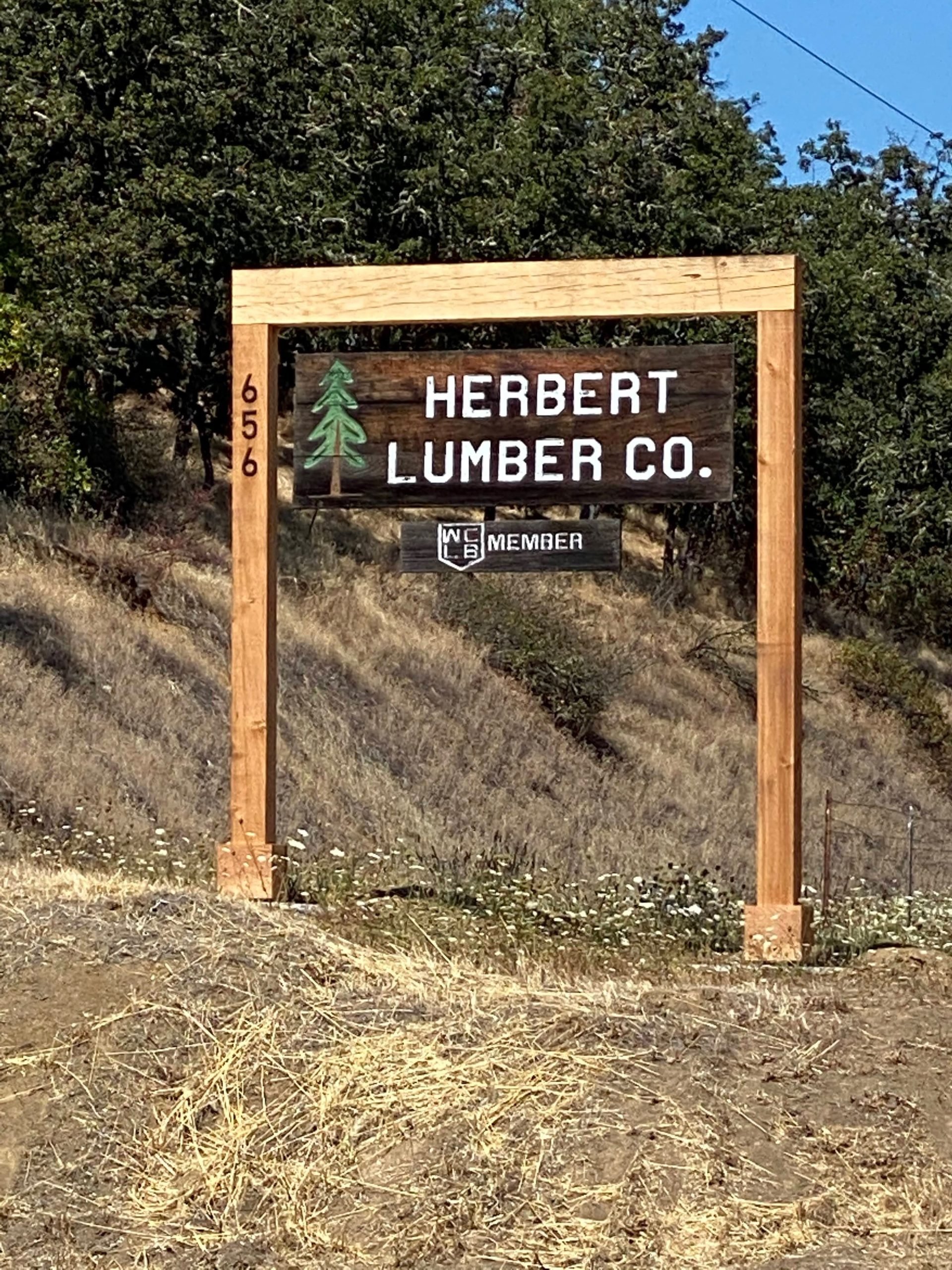
HERBERT LUMBER CO.
Herbert Lumber Co. in Riddle, Oregon purchased wood from the Coquille Indian Tribe and kept it separate from its other wood sources to ensure its origin could be traced. Zip-O-Log manufactured the wood into glulam beams.
Ceiling Lattice
Harvested from over ten family, Tribal, and community forests across the Pacific Northwest, including family and tribal forest lands. The lattice material used in the new ceiling of the PDX Airport adds some uniquely Pacific Northwest character using beautiful Douglas-fir wood and highlighting the equally touching stories of the local forests and communities who supplied them.
The Forests
Harvested from over ten forests across the Pacific Northwest, including family and tribal forest lands.
-
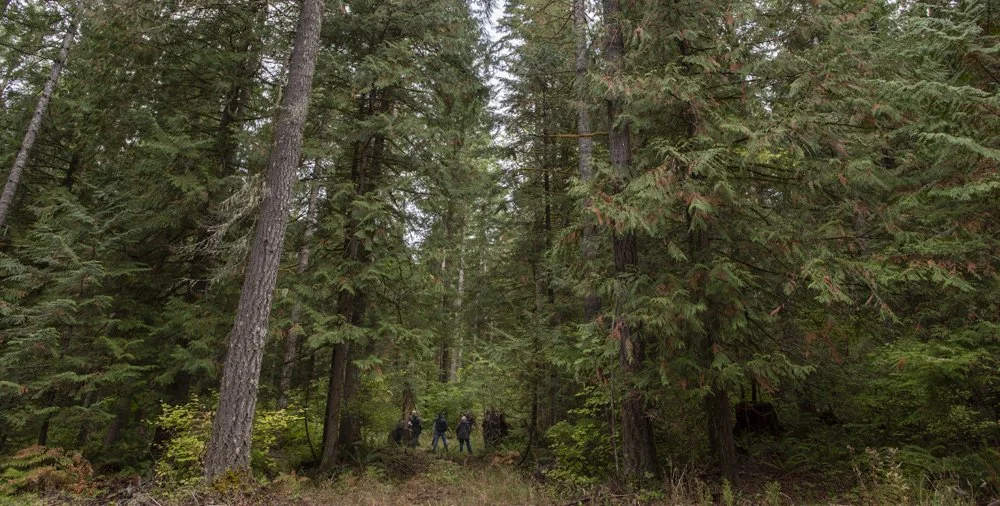
HANSCHU FAMILY FOREST
In 1956, Ann Hanschu’s father bought a parcel of forestland outside Gales Creek, OR. Now, Richard and Ann manage the forestland on longer rotations, with many different species and varying classes.
-
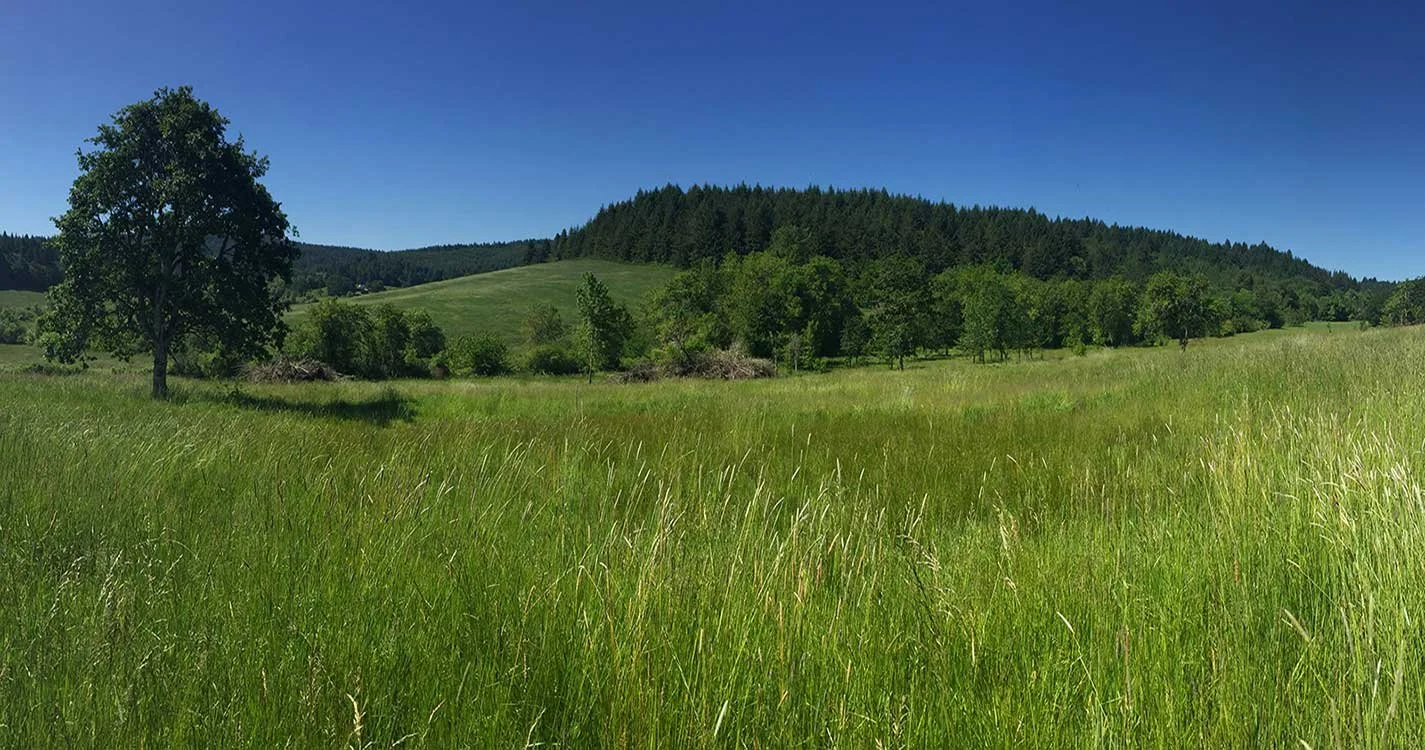
WILLAMETTE UNIVERSITY FOREST
Willamette University Forest, managed by Trout Mountain Forestry, is part of the largest remaining contiguous block of forest land in the Eola Hills west of Salem, Oregon.
-
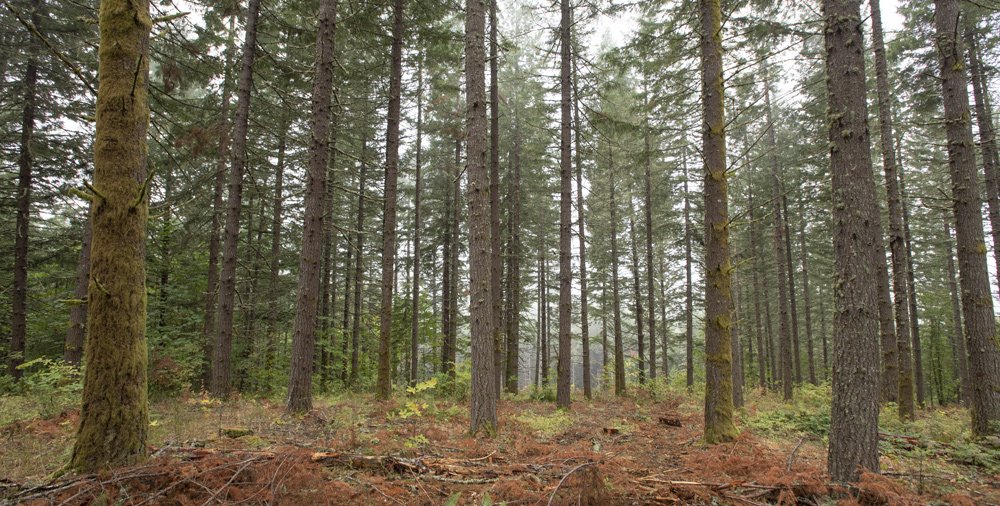
HYLA WOODS
Hyla Woods, located 50 miles west of Portland, is a family-owned group of forests that practices regenerative forest management, including growing old trees in many native species, creating large buffers around streams, and continuously restoring the forests’ health and vitality.
-

CAMP ADAMS
Camp Adams, managed by Trout Mountain Forestry, is a youth camp in Molalla, OR, that teaches the importance of active forest management.
-

CAMP NAMANU
Camp Namanu, managed by Trout Mountain Forestry, is a 552-acre youth camp operating continuously since 1924 on the banks of the Sandy River.
-
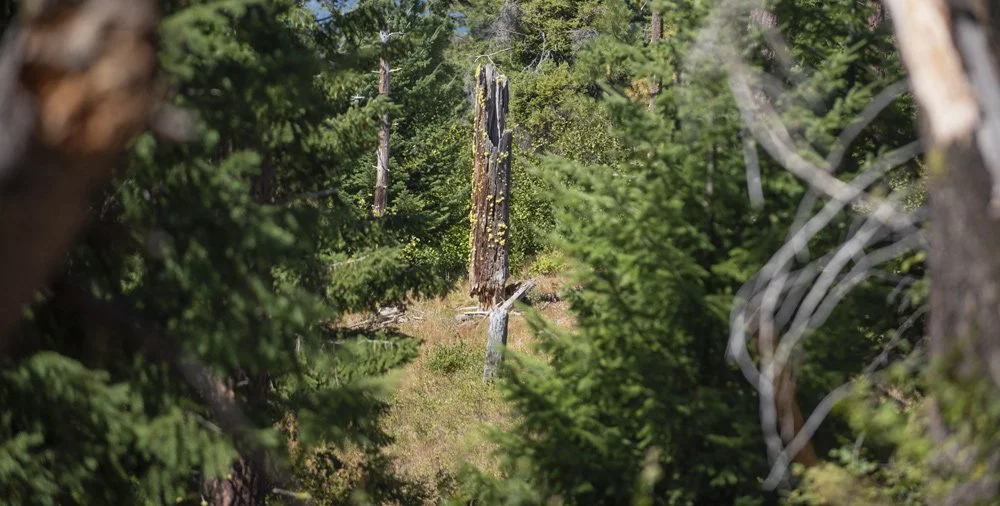
CLE ELUM FOREST
The Cle Elum Forest, managed by The Nature Conservancy, is located in the Central Cascades of Washington and has long-term goals to restore the forest to what it would have looked like hundreds of years ago.
-

SKOKOMISH TRIBE FORESTLAND
The Skokomish Tribe owns and manages, with help from Northwest Natural Resource Group, a section of forestland in the Puget Sound of Washington, with the goal of restoration and salmon always in mind.
-

ROSLYN URBAN FOREST
The Roslyn Urban Forest is approximately 300 acres on the eastern slopes of the Cascade Mountains of Washington State. The large space serves as habitat for a variety of plant and animal species and provides recreational opportunities for the citizens of Roslyn and its visitors.
-

CAMP BISHOP - GRAY'S HARBOR
Camp Bishop, located about 40 miles North-West of Olympia, Washington, is a popular outdoor destination owned and operated by the YMCA.
-
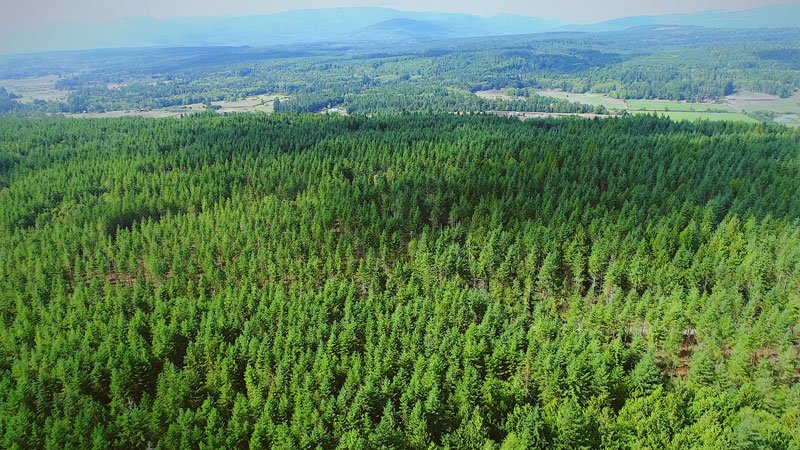
CHIMACUM RIDGE COMMUNITY FOREST
Located on the Puget Sound in Washington, the Chimacum Ridge Community Forest aims to meet the needs of the local population, maintain a diverse ecosystem, and provide sustainable timber outputs.
-

JBLM (AIR FORCE BASE)
Joint Base Lewis McChord (JBLM) is a military base located south of Tacoma, WA, that owns and manages 61,000 acres of forest to high ecological standards.
The Manufacturers
Kaster’s Kustom Cutting & Manke Lumber processed wood into the Lattice for the PDX-NEXT remodel.
-

KASTER'S KUSTOM CUTTING
Kaster’s Kustom Cutting, located in Mulino, OR, is a custom sawmill that played an integral role in milling much of the lattice used in the airport project. They sourced logs from several local family-owned & managed forestlands and kept the material separate as it went through their log yard.
-
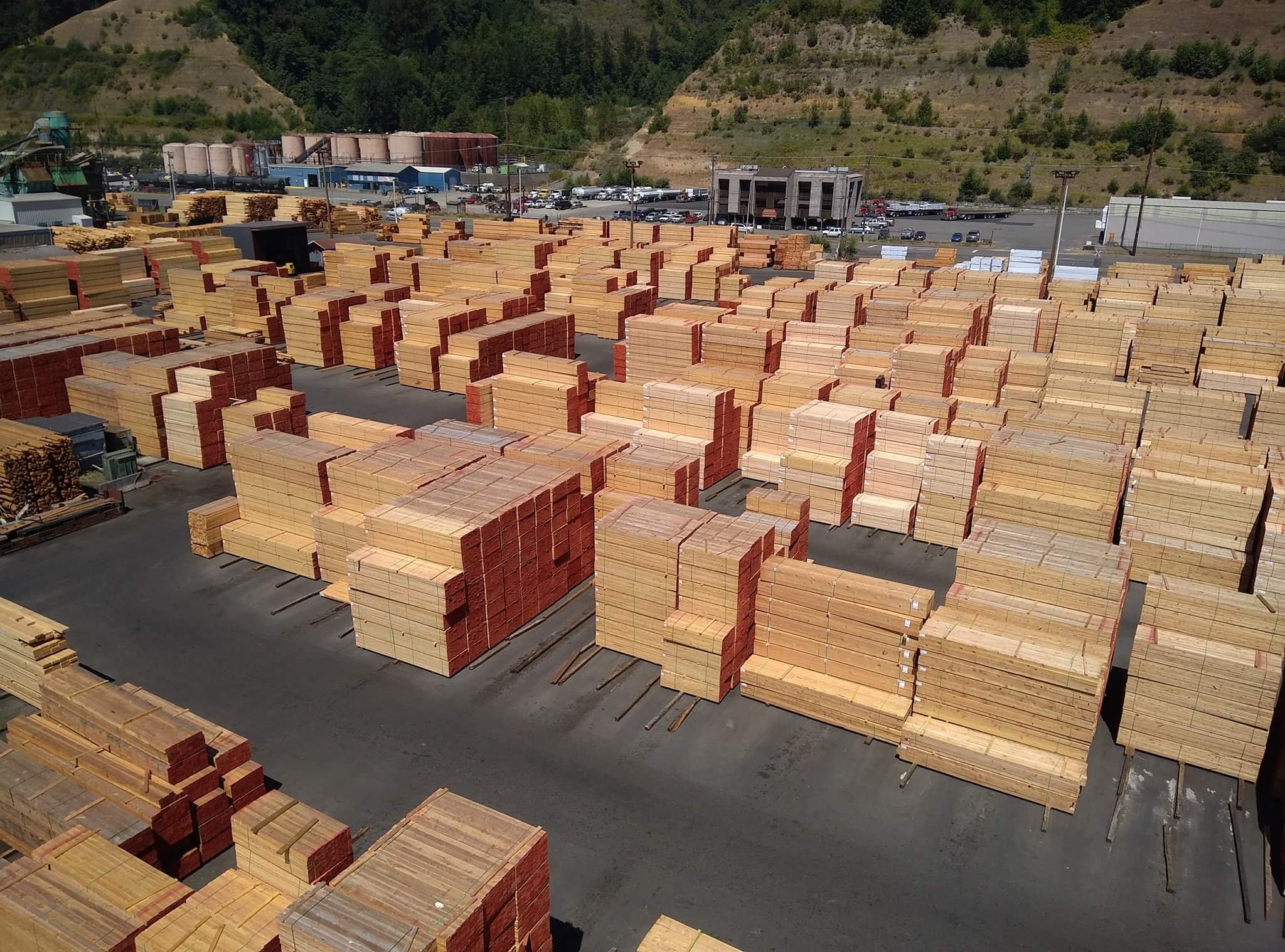
MANKE LUMBER
Manke has been in the Tacoma community for over 50 years and sourced logs from nine different landowners, including the Skokomish Tribe, Cle Ellum forest, and the City of Roslyn, and kept the logs separate to be milled into unique lattice for the Portland Airport's remodel.
Oregon White Oak Flooring
The flooring in the PDX airport is one-of-a-kind and celebrates all the natural beauty of one of Oregon's most precious resources - trees. The Oregon White Oak used in the new flooring traveled less than 70 miles to get here from Zena Forest, and the relatively small component parts of this flooring greatly reduces waste, and it will be the first of its kind manufactured in the United States.
For over 30 years, the Deumling family has owned and operated Zena Forest Products and cared for the Zena Forest, proving that forests can be managed for the health of the forest ecosystem while creating jobs and world-class flooring out of native hardwood.
The Forest & Manufacturer
Harvested in the Willamette Valley from Zena Forest and manufactured in Polk County, Oregon by Zena Forest Products.
-
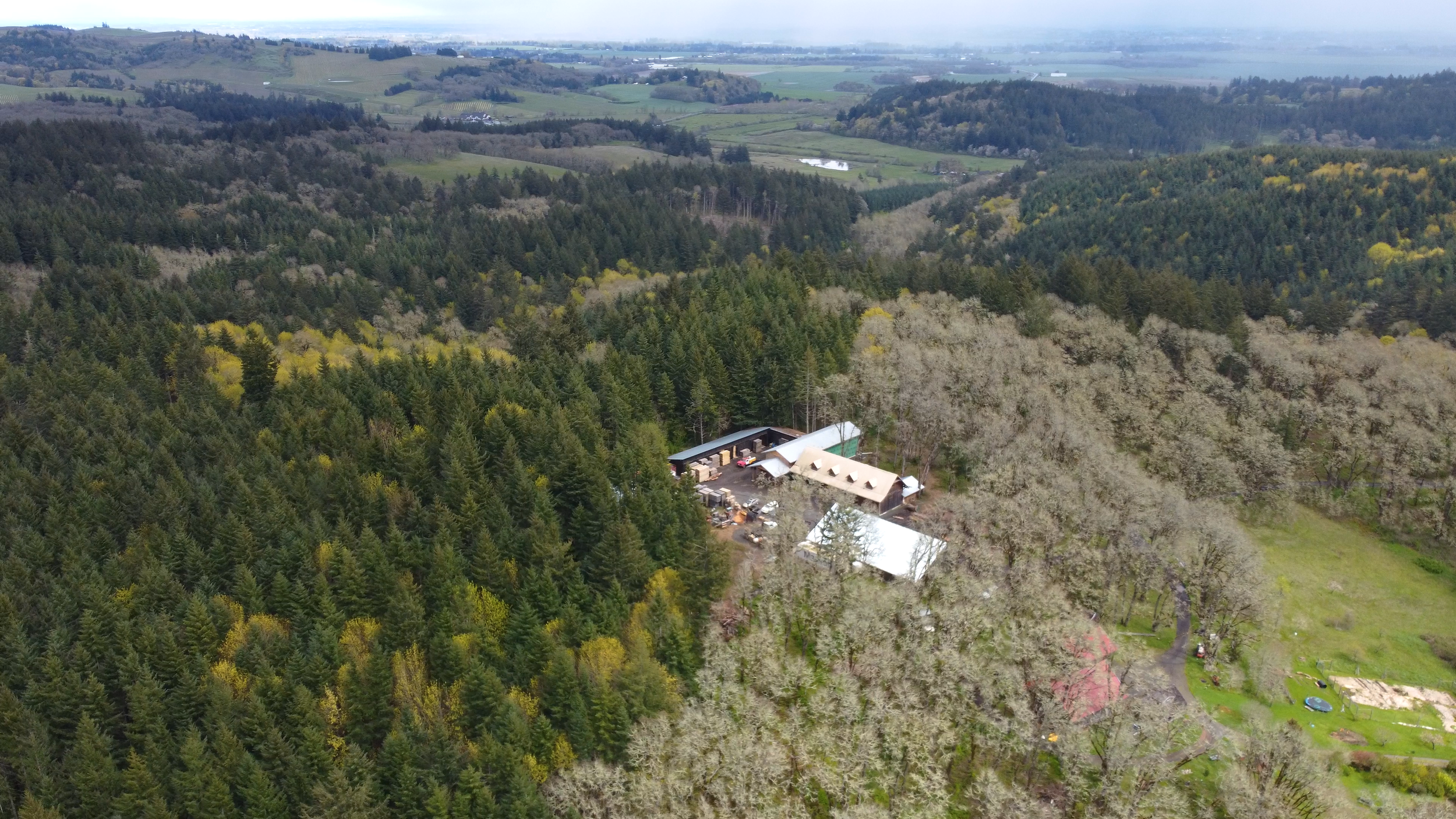
ZENA FOREST
For over 30 years, the Deumling family has cared for the Zena Forest, the largest remaining swath of forest in Oregon's Willamette Valley. It includes areas of endangered Oak Savannah and Oak Woodland ecosystems and headwaters of the Rickreall, Yamhill, and Spring Valley watersheds.
The Deumling family has always managed the roughly 1,300-acre forest for complexity out of a conviction that greater diversity means greater resilience. The Zena Forest is a mixed-species, mixed-age forest managed through low-intensity selective harvest.
Add in the short 70-mile trip from the forest to PDX, and you have an unparalleled story of sustainability and environmental stewardship - from the forest floor to the airport floor.
-
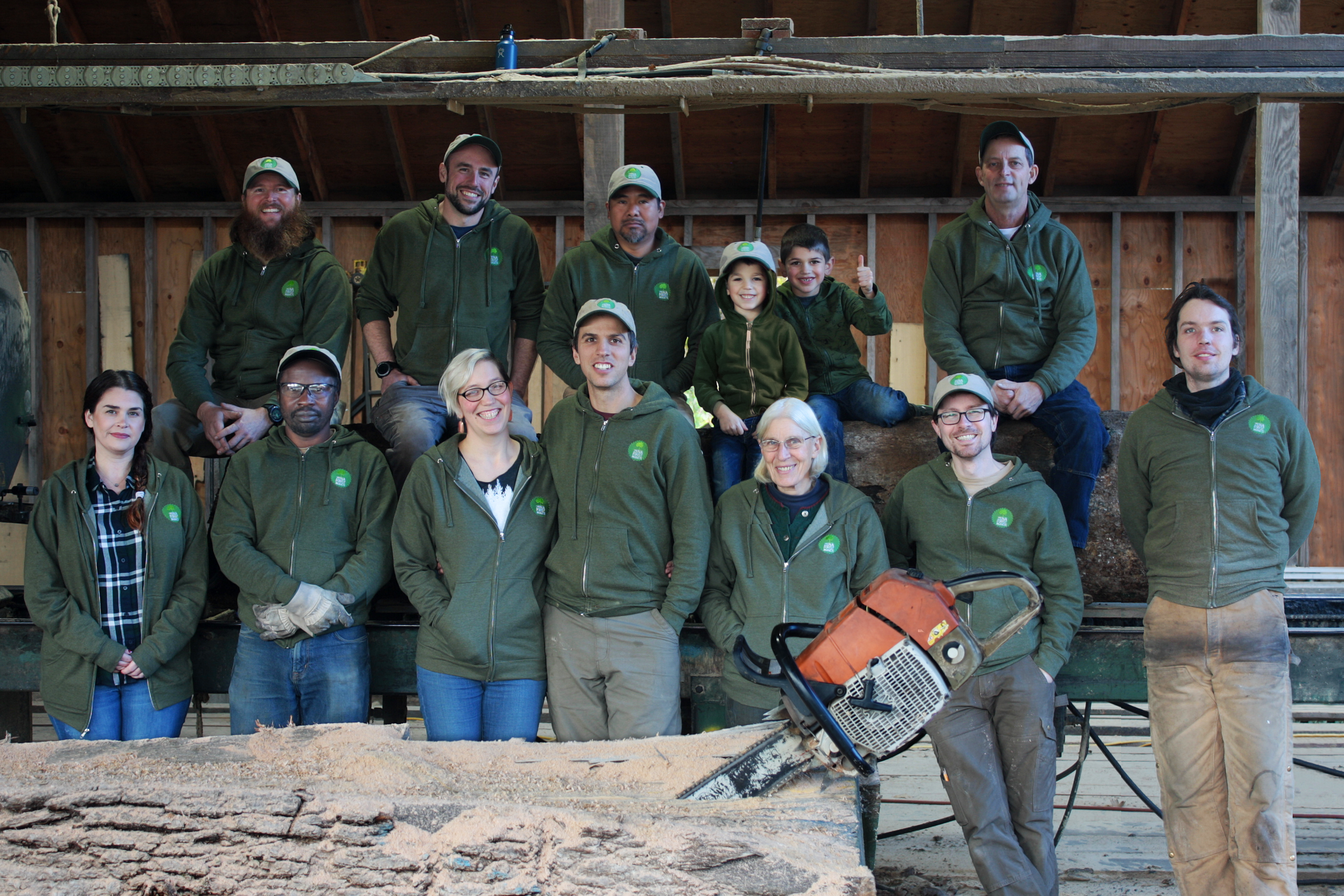
ZENA FOREST PRODUCTS
Like all Zena Forest Products flooring, the PDX airport's new flooring supports the care and restoration of the Zena Forest. That work includes planting native seedlings and removing invasives without destructive practices like aerial spraying and logging with the health of the whole forest ecosystem in mind. From the tiny Willamette daisy to the biggest fir, all are cherished inhabitants of this lush forest.
This attention to detail and care for the natural world carries over into the flooring that Zena creates. At every point, they prioritize quality, sustainability, and longevity.
Their hardwood flooring is built to last over 100 years and endure millions of footsteps.
Other Contributors
ELK CREEK FOREST PRODUCTS
Elk Creek Forest Products in McMinnville, Oregon, was an instrumental partner in helping track and trace each piece of wood in the PDX Next airport project from forest to frame.
SUSTAINABLE NORTHWEST WOOD
Sustainable Northwest Wood is a wholly owned, for-profit subsidiary of Sustainable Northwest. Ryan Temple is the president of Sustainable Northwest Wood and was instrumental in helping source a large portion of the wood for the Portland Airport's new main terminal.
COW CREEK BAND OF UMPQUA TRIBE OF INDIANS
Wood from the Cow Creek Band of Umpqua Tribe of Indians came from the Tribe's forest restoration work and went to the concessions area of the PDX Airport's new main terminal.

